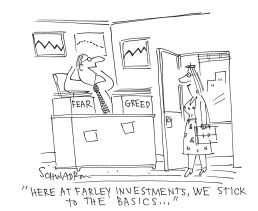As a society, we love dualism. We enjoy reducing our options to two, and framing it so that the only options we have are the two that we often can’t stop obsessing over. Yes, our love of dualism is a lens to view the most recent presidential election and its aftermath (e.g., You either were for Trump or participated in the marches this past weekend, You either were for Trump or are for abortion, etc.).
It is also a lens to view most decisions. A few dualisms related to higher education, and specifically student affairs are:
 We either go to college or we don’t; We are either life-long learners or we’ve stopped learning; and one that has been on my mind over the past two years, “I will either get better or I will not”. Thankfully, given my health challenges I’ve had to make my options for this one more complex than a simple one or the other.
We either go to college or we don’t; We are either life-long learners or we’ve stopped learning; and one that has been on my mind over the past two years, “I will either get better or I will not”. Thankfully, given my health challenges I’ve had to make my options for this one more complex than a simple one or the other.
Another that has cropped up recently in my mind is:
We are either for students developing/growing/learning/becoming complex in how they make meaning or we are for student success.
Why is it that we do this?
I genuinely am interested in knowing. It makes no sense to me why we would frame our practice as though we have two options (please know that I am not perfect in not doing it either..see above). Yes, there is a movement to use “big data” to shape the higher education experience for students. And I agree that it has potential to result in some more personalized experiences for our students, which is great! Still, I believe that it is us humans that assist in the d evelopment of students (aka, helping others learn), not computers exporting formulas. Thus, I believe that there will always be a need for some sort of student affairs professionals.
evelopment of students (aka, helping others learn), not computers exporting formulas. Thus, I believe that there will always be a need for some sort of student affairs professionals.
Additionally, although I agree that the innovation of the assembly line in the United States (U.S.) allowed us to gain traction in terms of having an advantage on a global scale economically speaking, I do not think that human growth occurs in an assembly like fashion. If it did, I hope we would have had it figured out a long time ago. Thus, another reason why I believe that there will be a need for student affairs professionals.
Another way that we enjoy dualism in our everyday lives is to reduce our interactions with others to be simply an evaluation of someone’s intelligence.
They are either intelligent or not.
This one I’ve heard a lot lately due to the el ection, so not just within education.
ection, so not just within education.
Although lately in higher education, we seem to be doing this in regard to a variety of issues: social justice issues, what it means to be professional, political perspective, etc. I hope that we catch ourselves in these moments and pull back from drawing a causation between a person’s intellectual abilities and how they make sense of the world. I know that we often don’t…as evidenced by conversations I’ve witnessed in person and on social media.
The multitude of options that exist between two choices is an area we as student affairs professionals can assist others in seeing. As long as we continue to be the folks who have examined change (aka development) on the individual level, as well as on the organizational level–including how the two interact. Again, there is another reason we need student affairs professionals….perhaps even for life, not just within institutions of higher education.
Lynn Pasquerella, President, Association of American Colleges and Universities, speaks to our belief in dualism as well in a video published by The Chronicle of Higher Education in December, 2016.
So, again, I ask: Why do we reduce our options to only two? And this time I add to the question: What can you doing to recognize it and help move beyond it?
